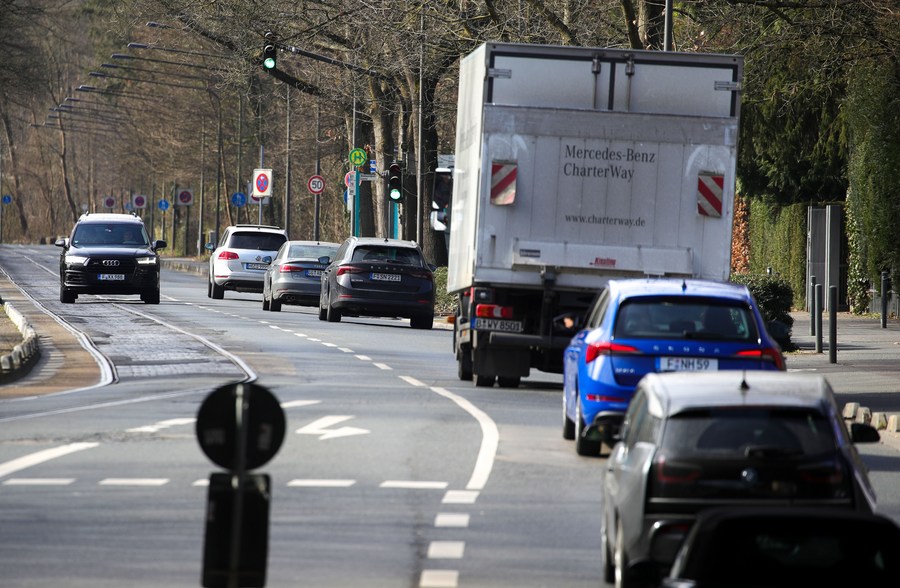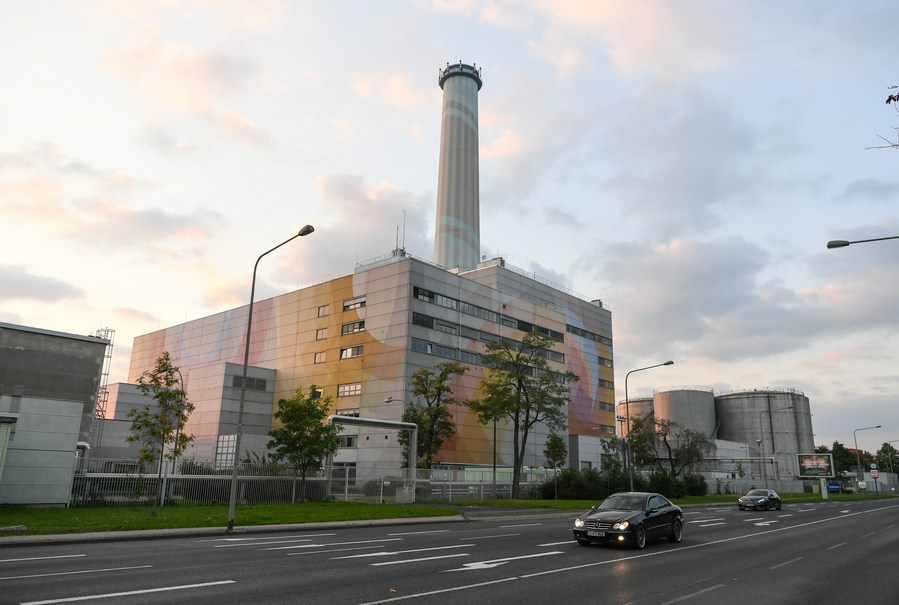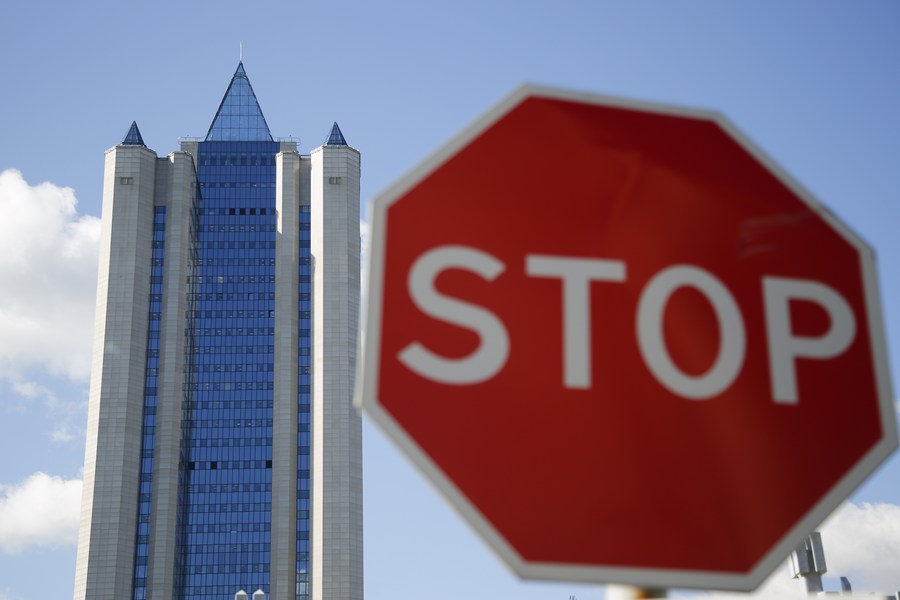
Photo taken on March 18, 2022 shows vehicles traveling on a road in Frankfurt, Germany. (Photo by Armando Babani/Xinhua)
During the temporary halt to Russian gas supplies via Nord Stream 1, gas flows to Germany were significantly reduced, putting further pressure on prices. The German government aims to fill storage to 95 percent of capacity by November.
BERLIN, July 25 (Xinhua) -- German gas supplies are solid again as the country's storage facilities are filled to almost two-thirds of capacity, Klaus Mueller, president of the country's Federal Network Agency (BNetzA), said on Monday.
After ten-day maintenance of the crucial Nord Stream 1 pipeline, gas deliveries from Russia resumed last Thursday. Gas flows are now at the reduced pre-maintenance level of 40 percent.
During the temporary halt to Russian gas supplies via Nord Stream 1, gas flows to Germany were significantly reduced, putting further pressure on prices. The German government aims to fill storage to 95 percent of capacity by November.
In June, prices for energy products continued to rise sharply and were up 38 percent year-on-year, according to the Federal Statistical Office (Destatis). In particular, heating oil prices more than doubled and natural gas was around 61 percent more expensive.

Photo taken on Oct. 8, 2021 shows a thermal power station in Frankfurt, Germany. (Xinhua/Lu Yang)
Last Friday, the German government stepped in to save Uniper SE, the largest German importer of Russian gas, with a "comprehensive support package," according to a statement by the Ministry for Economic Affairs and Climate Action (BMWK).
Uniper played a "central role" in the supply of gas and electricity in Germany, the BMWK said. The company was in "an acute emergency situation due to the failure to deliver contractually agreed gas supplies."
"We all face major challenges," German Chancellor Olaf Scholz said. "No country can say that it is not affected by the rising energy prices that are playing a role worldwide and, of course, by the challenges that are arising with regard to gas."
According to Destatis, natural gas is a "major energy source" for both industry and households in Europe's largest economy. In 2020, natural gas generated 31 percent of the German industry's power demand.

Photo taken on April 28, 2022 shows the office of Russia's energy giant Gazprom in Moscow, Russia. (Photo by Alexander Zemlianichenko Jr/Xinhua)
At the same time, Germany has become highly dependent on gas imports. In 2021, net imports of natural gas amounted to an energy output of 904.5 billion kilowatt hours. Only around 5 percent were generated domestically, according to Destatis. ■


















Latest comments